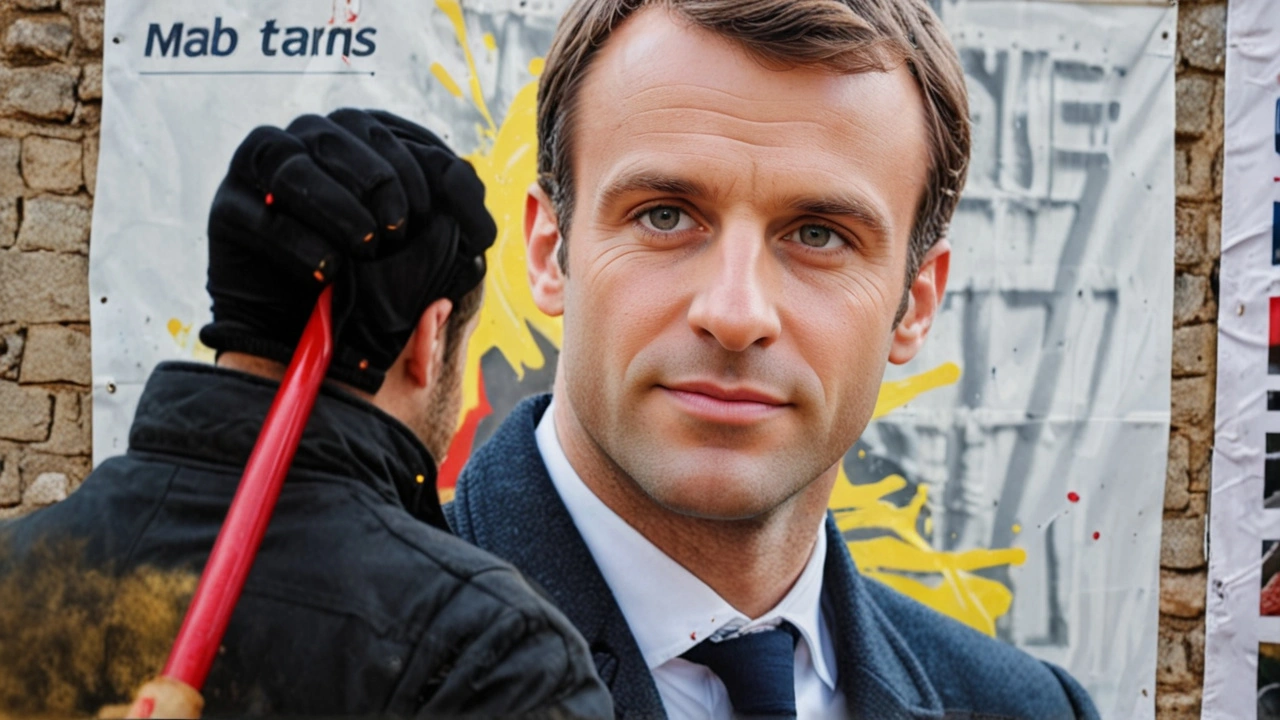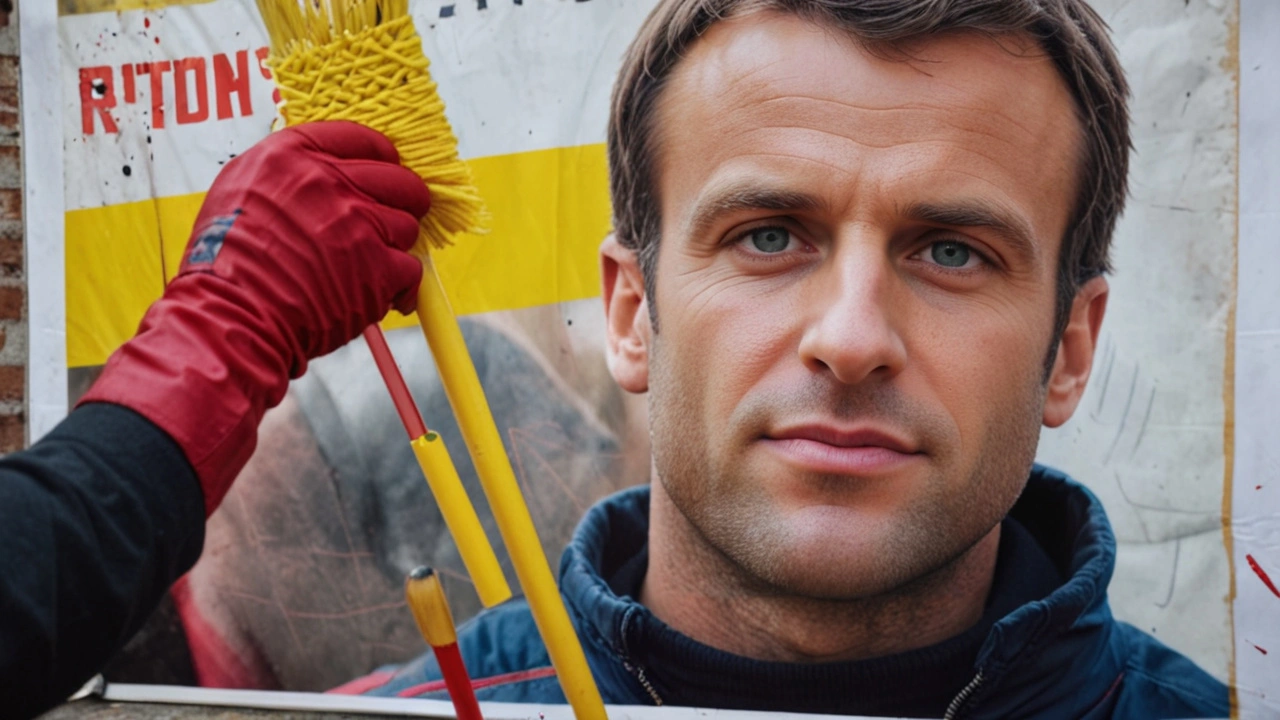The Unexpected Political Shift in France
The political landscape in France has been rocked by an unforeseen outcome in the recent snap parliamentary election. French President Emmanuel Macron, who once stood as a beacon of pro-European and pro-business ideals, now faces a crisis of legitimacy. An unexpected victory by the left-wing New Popular Front coalition in the elections has thrown a wrench into Macron’s plans, revealing serious cracks in his political strategy.
Macron’s plan was arguably audacious. He gambled on a snap election, likely expecting a straightforward victory by the far-right National Rally, which he anticipated could fragment the opposition. Instead, the left-wing coalition seized the opportunity and won. This surprise outcome has shifted the political equations dramatically, undermining Macron's position both within France and on the broader European stage.
A Gamble Gone Wrong
Macron's perceived strategic prowess and political acumen have been seriously called into question. The election results have highlighted a glaring disconnect between Macron’s administration and the sentiments of the French populace. Many viewed the snap election as a hubristic move, exacerbating concerns about his alleged arrogance and disconnection from voter concerns. The left-wing coalition's unexpected success underscored that dissatisfaction, sending a clear message that the electorate demands change.
With Macron's authority weakened, he now faces the arduous task of governing alongside a coalition or technocratic administration that may align more closely with left-wing ideologies. This scenario could lead to significant policy stalemates, as Macron's pro-business, pro-European agenda collides with the left's priorities. The path ahead looks fraught with potential for political wrangling and institutional gridlock as various factions vie for control and influence.

Far-Reaching Implications for France and Europe
The ramifications of Macron's miscalculated gamble are profound. On the domestic front, the rise of the National Rally has illuminated a growing wave of concern regarding immigration and cultural identity. These issues have been critical touchpoints in contemporary French politics, reflecting broader societal anxieties. The Parliamentary election results suggest a nation grappling with divided priorities, increasingly vocal in its demand for holistic solutions to complex issues.
This political upheaval is not contained within France's borders. Macron's diminished standing will likely affect his influence within the European Union too. Known for his robust pro-European stances, Macron has been a key player in advocating for deeper integration and stronger inter-European ties. However, with his authority now questioned at home, his ability to champion these causes internationally could wane.
The Challenge of Collaboration
For Macron, the path forward will require strategic rethinking and adaptive governance. Collaborating with a coalition or technocratic administration is no small feat, particularly under these strained conditions. It is expected that tug-of-wars over policy priorities will become the norm as Macron navigates this complex new terrain. Furthermore, the quest for the Prime Minister’s position by the left-wing faction adds another layer of political maneuvering, possibly leading to prolonged negotiations and tactical stand-offs.
Macron’s legacy, previously seen as dynamic and reformist, now faces scrutiny and possible redefinition. His policies and leadership style will undergo intense evaluation, both by the public and within political spheres, as France embarks on this contentious chapter. Whether Macron can pivot and reclaim some measure of his earlier reputation remains an open question, dependent on his ability to engage with and appropriately address the electorate’s growing concerns.

A Divided Electorate and Future Prospects
The recent election has laid bare a deeply divided electorate. The juxtaposition of a successful left-wing coalition and the rising prominence of the far-right National Rally encapsulates the diverse and often conflicting priorities within French society. Issues such as economic reform, social equity, immigration, and national identity are at the forefront of the country’s political discourse, each presenting unique challenges to those in power.
For the foreseeable future, France is likely to experience a period of heightened political activity and social debate. Macron’s administration will have to navigate these choppy waters, striving to achieve legislative victories while contending with a robust and divided opposition. The ability to build coalitions and foster dialogue across party lines will prove critical to any legislative success.
Conclusion
In conclusion, Emmanuel Macron's unexpected setback in the recent parliamentary election has reverberated through the French political landscape, calling into question not only his leadership within France but also his influence on the European stage. As he maneuvers through the political complexities ahead, his legacy will be shaped by his response to these challenges. While the ultimate outcomes remain uncertain, one thing is clear: Macron’s political journey has entered a new, tumultuous phase fraught with both risks and opportunities.

14 Comments
Ajay Ram July 10 2024
When we look beyond the headline statistics of the recent French parliamentary vote, we encounter a tapestry of collective anxieties that have been simmering for years, a tapestry that Emmanuel Macron seemed to think he could reweave with a single snap election. The very act of calling an early election was, in my view, an expression of hubris that presumed the electorate would simply reaffirm a centrist technocratic vision without questioning its underlying premises. Yet the electorate responded not merely with votes but with a profound narrative that challenges the notion of top‑down reformism. This narrative is rooted in a historical consciousness of French republicanism, where the legitimacy of power derives from popular consent rather than institutional convenience. Moreover, the emergence of the New Popular Front signals that a coalition of left‑leaning forces can coalesce around shared principles of social justice, ecological stewardship, and a reimagined relationship between the state and its citizens. The left’s victory, far from being a mere partisan upset, adds a new layer to the ongoing dialectic between globalization and sovereignty that has defined Europe for the past decade. In this context, Macron’s pro‑European agenda now appears to be caught between the desire for deeper integration and the domestic demand for protecting national socioeconomic fabrics. The political calculus that once placed him at the helm of a Europe‑wide reform coalition must now grapple with the reality of a fragmented French polity. This fragmentation, however, should not be dismissed as merely a setback; it can be understood as an invitation for a more participatory form of governance that embraces dissent as a source of vitality. The challenge ahead lies in transforming the energy of protest into constructive policy proposals that can survive the rigors of parliamentary negotiation. Furthermore, it is essential to recognize that the rise of the National Rally, while often framed as a far‑right phenomenon, also reflects legitimate concerns about immigration and cultural identity that have been insufficiently addressed by successive governments. Balancing these concerns with progressive social policies will require a thoughtful calibration that avoids both reactionary nationalism and detached technocracy. As scholars of political culture, we must encourage a dialogue that transcends binary oppositions and seeks integrative solutions. In sum, the election outcome offers a rare opportunity to reexamine the foundations of French democratic practice, to question the efficacy of top‑down reforms, and to envision a future where governance is more attuned to the pluralistic aspirations of its citizens.
Dr Nimit Shah July 11 2024
It's clear that the French electorate has grown tired of elite maneuvers that ignore the everyday concerns of real people, and Macron's gamble only served to validate that sentiment. While some may applaud the left's sudden ascendancy, we must remember that bold leadership often demands calculated risk, not reckless improvisation. The current political turbulence is a direct result of dismissing the genuine frustrations that have brewed beneath the surface. France needs a stable direction, not perpetual indecision, and the leaders must rise above partisan theatrics to deliver tangible results.
Ketan Shah July 13 2024
Historically, snap elections have been used as a tool to consolidate power, yet they frequently backfire when public trust is already eroded. In the French context, the electorate's response highlights a broader European trend where voters are seeking more authentic representation rather than scripted political games. This shift underscores the importance of aligning policy proposals with the lived realities of citizens across the spectrum.
Aryan Pawar July 14 2024
Macron thought he could outsmart the voters but the result speaks for itself. The left showed up strong. The snap election was a miscalculation. Now we see coalition talks ahead. Everyone will be watching how this plays out.
Shritam Mohanty July 15 2024
What most people fail to see is that the timing of the election coincided with a series of undisclosed financial transactions involving shadowy lobbying groups beholden to multinational interests. This pattern suggests that external forces are deliberately engineering instability in France to weaken its influence within the EU and pave the way for a new economic order that serves only the elite few. The media silence on these connections is nothing short of orchestrated deceit.
Anuj Panchal July 16 2024
From a policy‑implementation perspective, the unexpected leftward shift introduces a multidimensional realignment of normative frameworks, necessitating a recalibration of fiscal stimulus vectors and regulatory compliance matrices. Stakeholder engagement mechanisms will need to be reengineered to accommodate a broader coalition of interest groups, while maintaining coherence with EU‑wide macro‑economic convergence criteria. In practice, this translates to iterative policy synthesis cycles and cross‑sectoral governance dashboards to monitor impact metrics.
Prakashchander Bhatt July 17 2024
Even though the political landscape looks choppy right now, this could be the perfect moment for fresh ideas to take root and for collaborative problem‑solving to flourish. If leaders focus on common ground rather than entrenched divisions, we might see innovative solutions emerge that benefit all French citizens.
Mala Strahle July 18 2024
The election outcome underscores a fundamental truth: governance cannot rely on top‑down decrees alone; it must be responsive to the evolving aspirations of the populace. Macron's legacy will now be judged not just by his European ambitions but by how adeptly he navigates this domestic recalibration.
Sally Sparrow July 20 2024
This whole debacle just proves Macron’s hubris.
Eric Yee July 21 2024
While the headlines focus on drama, the underlying policy implications are far more nuanced, especially regarding France’s role in the EU’s fiscal architecture and the balance of power within the Parliament.
Sohila Sandher July 22 2024
Wow this turn of events is like a total rollercoaster - can’t even imagine what’s next for france and the EU lol.
Anthony Morgano July 23 2024
Totally fascinated by how this will reshape the political dialogue! 😮👍 Let’s hope for some constructive debate that moves beyond the usual noise.
Holly B. July 24 2024
In light of recent developments, it is imperative that analysts adopt a measured approach, evaluating both domestic ramifications and the broader European context with rigor and objectivity.
Lauren Markovic July 25 2024
Great discussion, everyone! 😄📢 Keep the insights coming – the more perspectives we share, the clearer the picture becomes.